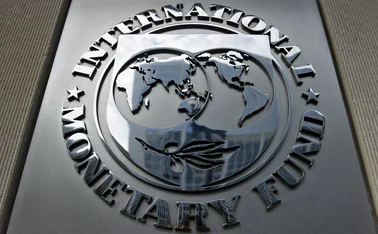
Bank of Lithuania swoops on troubled Ukio Bankas

The Bank of Lithuania won praise today for suspending the operations of Ukio Bankas – a small commercial bank with "risky tendencies".
The bank was accused of harmful shareholder actions and non-compliance with its supervision service, and was placed into administration yesterday.
The Bank of Lithuania's inspections of Ukio Bankas revealed numerous indiscretions, including the inappropriate assessment of credit risks, the use of unacceptable accounting methods, and the violation of prudential legal acts.
Nerijus Mačiulis, chief economist for Swedbank in Lithuania, says the central bank's intervention reflects the active position it has adopted in supervising domestic banks since Vitas Vasiliauskas became chairman in April 2011.
"They are making appropriate measures whenever it seems that shareholders or the management are misbehaving and not meeting certain requirements," he says. "In that respect, I think that the Bank of Lithuania is doing a good job."
The Bank of Lithuania is doing a good job
The bank's insufficient liquidity and capital adequacy ratios were first flagged up in January 2012. It was made public that the bank had issued around 50 million lita ($19.5 million) worth of bad loans, Mačiulis says, and its loan portfolio was subsequently written down.
"For that reason the bank was instructed to raise additional capital, which it did not do," he says.
The bank's troubles appear to have been public knowledge for some time. Its share price has fallen steadily in the past two years; sliding 75% in value from €0.369 per share on February 13 in 2011 to €0.093 today.
This is not the first time the Bank of Lithuania has intervened in the case of a failing bank. In November 2011 it placed another Lithuanian bank – Bankas Snoras – into administration for "irresponsible behaviour". The bank eventually collapsed.
The central bank's board has appointed an administrator to "examine and assess" the financial standing of Ukio Bankas. Vasiliauskas says the priority will be to establish the most effective and rational solution at the cheapest cost to the state.
In a release yesterday, the central bank said it would begin immediately discussing with other banks how they could be involved in the restructuring process.
The first bank out of the blocks was Šiaulių Bankas, whose CEO Audrius Žiugžda today revealed the bank was "ready to start negotiations with the Bank of Lithuania regarding the takeover of Ukio Bankas banking business in Lithuania".
Mačiulis says it is too soon to tell what will become of the bank. If there is only a small gap between its assets and liabilities, then he says it probably makes sense to keep the operations and integrate them with another bank. If not, then the central bank may be better off splitting up the bank's assets into good and bad, and liquidating the bad.
"I think it is more likely that part of the operations will continue and the government will look for ways to either sell or keep these operations running, not to close down the bank altogether," he says.
The Bank of Lithuania says Ukio Bankas' shareholders failed on several occasions to prove it could ensure the reliable management of the bank.
They did not fulfil an agreed loan restructuring plan, and disregarded the order to reduce the part of the loan portfolio related to the main shareholder, Vladimir Romanov.
Romanov owned 53.7% of the bank at the end of 2011, according to Ukio Bankas' latest annual report and is also the majority shareholder of the Scottish football club Heart of Midlothian. The club was recently subject to a winding-up order over an unpaid tax bill and hit with a transfer embargo after delays in the payment of staff salaries.
Only users who have a paid subscription or are part of a corporate subscription are able to print or copy content.
To access these options, along with all other subscription benefits, please contact info@centralbanking.com or view our subscription options here: http://subscriptions.centralbanking.com/subscribe
You are currently unable to print this content. Please contact info@centralbanking.com to find out more.
You are currently unable to copy this content. Please contact info@centralbanking.com to find out more.
Copyright Infopro Digital Limited. All rights reserved.
You may share this content using our article tools. Printing this content is for the sole use of the Authorised User (named subscriber), as outlined in our terms and conditions - https://www.infopro-insight.com/terms-conditions/insight-subscriptions/
If you would like to purchase additional rights please email info@centralbanking.com
Copyright Infopro Digital Limited. All rights reserved.
You may share this content using our article tools. Copying this content is for the sole use of the Authorised User (named subscriber), as outlined in our terms and conditions - https://www.infopro-insight.com/terms-conditions/insight-subscriptions/
If you would like to purchase additional rights please email info@centralbanking.com








